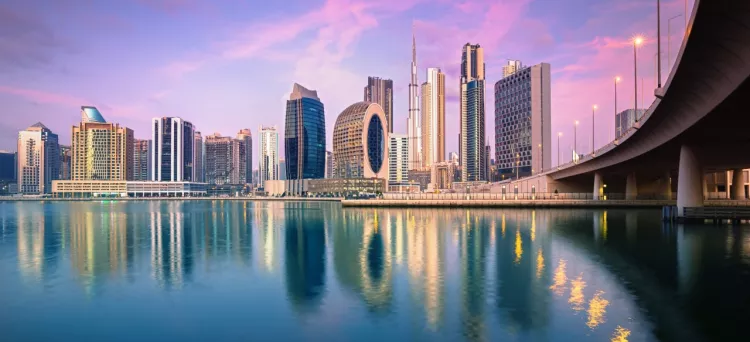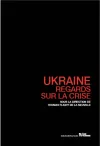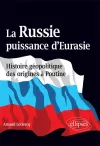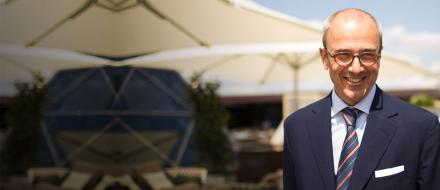Dubai is a key player globally…And its capabilities attract investors and wealthy individuals
Arnaud Leclercq, Group Managing Director of Lombard Odier Bank, the Swiss global wealth and asset management group, emphasized that Dubai's assets have made it a key player on the global stage and thus more attractive to entrepreneurs and wealthy individuals, a remarkable paradigm shift that affects not only the region, but the world as well.
In an exclusive interview with Al Bayan, Arnaud Leclercq shared that the bank has obtained a license to operate in the Dubai International Financial Centre, praising the speed and effectiveness of procedures in the centre. He confirmed that the new license aims to provide wealth management advice to global investors and GCC nationals.
Leclercq added that there are many factors that have made Dubai a magnet for wealthy people from around the world, foremost of which is the successful management of the Covid-19 crisis, the introduction of golden visas, and the change of vacation days to Saturday and Sunday. He added that these factors were well noted by wealthy individuals, pointing out that the bank has witnessed an influx of wealthy families and businessmen from Western Europe to the emirate to run their international businesses.
As for the current economic climate, Leclercq does not expect a global recession, however, he does foresee slower global economic growth and more stable interest rates in the United States until the middle of next year. He also states that oil prices will not exceed the price of $100 per barrel in 2024 with no expectation of sudden spikes in prices.
The following is the text of the interview:
Can you provide a brief overview of Lombard Odier's presence in the UAE and its new license in DIFC?
Last week I attended the celebration of the fiftieth anniversary of the establishment of Swiss-Emirati diplomatic relations. We have had a strong presence in the GCC region for almost six decades. Our business has been directly managed in Geneva, and we have had a representative office in the UAE for 17 years.
Historically, our focus was on GCC nationals, and of course, things have changed drastically over the past decades. The influx of very wealthy individuals into the region from all over the world has been another important factor for us.
Based on our 227-year legacy, and as a partner bank, we are always evolving and adapting to the needs of our customers, and we continue to attend to those needs from generation to generation.
Today, GCC nationals and other global investors who have established their presence here want a close service advisory. This prompted us to apply for and receive a new license from DIFC in record time (less than six months).
How does the licensing process and timeframe in Dubai compare to other global financial centres?
Licensing in Dubai, specifically at DIFC, was surprisingly quick, especially considering the high demand. While I don't have precise statistics, it typically takes much longer to obtain a similar license around the world, perhaps twice as long. The procedures in the DIFC have been very efficient.
Can you elaborate on the recent influx of wealthy individuals and major financial institutions to Dubai?
Several factors are driving this trend. Firstly, the UAE's effective management of the COVID-19 pandemic such as the swift vaccination efforts, and the introduction of the Golden Visa, allowing up to 10 years of residence, have attracted global talent. The shift to a Saturday-Sunday workweek has also been efficient and noted by wealthy individuals worldwide.
Moreover, global events like the war in Ukraine and domestic issues in various countries have left some wealthy entrepreneurs seeking stability and a better quality of life. Offering a 10-year visa makes Dubai an attractive destination for them, fostering talent influx and business growth.
Dubai's strategic location near booming regions like the Indian subcontinent and Africa has transformed it into a central hub for international business. This shift is further driven by geopolitical changes, with many countries seeking independence and avoiding alignment with major powers.
In summary, Dubai's appeal to wealthy entrepreneurs, its strategic position, and evolving geopolitics make it a pivotal player on the global stage. This transformation signifies a paradigm shift of utmost significance, impacting not only the region, but the world.
Which countries do wealthy people come from to Dubai?
I can only provide observations, as I don't have specific statistics from the government. What we do know, especially at Lombard Odier, is that we've witnessed an increase in clients from Western European countries like the UK, France, Italy, Germany, and Sweden. There are traditionally wealthy families, entrepreneurs, often highly educated, who are now increasingly choosing Dubai as their base for international business.
Regarding the Indian subcontinent, we've seen established families in Dubai expanding their business activities, particularly with Africa, involving trade in consumer goods and more. We also focus on families from the Indian subcontinent who have been established here for many years. So, it's not just about people coming from other countries to Dubai, but also Dubai-based businesses expanding their reach.
How do you see the development of the wealth management sector in the UAE?
The wealth management sector in the UAE has its perks, one of which is local banks, that have garnered significant interest from many financial institutions. This interest is driven by several factors, including accumulating assets, increasing demand for sustainability, and a generational shift in financial values.
Unlike other finance sectors, wealth management offers stable, recurring revenues. It's not subject to the same cyclical trends as M&A or investment banking services.
Can you specify the current assets under management for Lombard Odier in the Middle East?
Our clients' assets under management from Lombard Odier total approximately $350 billion. We have clients from all over the world, spread across several geographical locations, with a third in Switzerland, a third in Europe and a third in new markets. Additionally, GCC markets - especially the UAE and Saudi Arabia - are among the top markets of interest to us.
What is your view on how to divide the investment portfolio between different asset classes?
The assets of a portfolio depend on multiple factors including the investor's ability to bear risks and financial goals. For example, if we have an investor whose conservative about achieving specific life goals, the recommended asset allocation for them may differ from a younger individual or someone who is around 60 years old, who considers factors beyond succession planning.
If someone for example has recently moved to Dubai, lifestyle choices might affect their investment strategy. We prioritize understanding our clients’ unique situation to customize their asset allocation accordingly, distinguishing our approach from other banks.
Regarding asset allocation, we currently favor high-quality bonds. We have significant investments in short-term U.S. Treasuries, which offer attractive returns in the investment-grade credit space.
How do you view investing in the real estate sector in the UAE?
Real estate is an essential component of a diversified portfolio. Everyone should have a part of their wealth in real estate. However, it's important to be cautious and diversify within the real estate sector, as it's less liquid compared to other assets. The real estate market can also be cyclical, so diversifying wisely is crucial.
What is your assessment of the performance of the financial markets in Abu Dhabi and Dubai in 2023?
Dubai and Abu Dhabi's financial markets have shown noticeable improvement, and definitely have a positive outlook, but liquidity and diversifying current stocks are factors that should be taken into consideration. Therefore, analysing these markets based on the investor’s goals and risk tolerance is key.
At Lombard Odier, we analyse the market and make timely investments. There have been successful IPOs, which is a positive trend. Many good companies are entering the market, but we should note that some specific situations have driven certain stocks up significantly, impacting the overall index in Abu Dhabi. While it's positive, it's limited to specific situations.
Considering the previous banking crisis in the U.S., do you anticipate a similar crisis happening in the near future?
We do not expect a major crisis in the near future, although it can't be completely ruled out due to any unforeseen geopolitical factors. Nonetheless, banks have stronger ratios and regulatory authorities have improved the financial sector's stability compared to 2008.
In light of the unstable global economic conditions, do you foresee a global recession in the near future?
No, we do not foresee a global recession at this time. We anticipate slower but steady growth, with factors such as higher interest rates and elevated commodity prices to consider. While we monitor political instability in some countries, a recession is not our core scenario.
Is gold still a safe investmenr in the current economic climate?
Certainly, gold is still seen as a safe asset, and will remain in the $1900 to $2100 per ounce range.
What do you see for the future of the US dollar? Will alternatives appear?
Today, China is the second largest economy in the world, and the yuan has become an alternative currency; especially in oil transactions. And although it will not completely replace the US dollar, it offers an alternative, as many countries aim to reduce dependence on a single currency.
How long do you expect the US Federal Reserve to continue its strict policy?
We expect US interest rates to remain stable until the middle of next year to control inflation without hindering growth.
What do you think about investing in cryptocurrencies?
At Lombard Odier, we are more interested in the technology linked to blockchain rather than cryptocurrencies themselves. Blockchain technology has already shown great potential. We believe in the potential of blockchain technology for various applications. While cryptocurrencies are interesting, we've decided to remain cautious about them.
Finally, do you expect oil prices to triple by 2024?
We don't foresee oil prices reaching three digits anytime soon. There is currently less demand than expected, partly due to less aggressive interest rate hikes. The pace of growth has also slowed. While prices may remain stable, a significant rise to three digits is unlikely unless there are unforeseen geopolitical factors.
It's in the best interest of oil-producing countries to maintain prices at their current levels, as excessively high prices could have negative consequences. The situation is complex, but we don't foresee a sudden surge in oil prices.
Source: Dubai - Meshal Al Abbas





